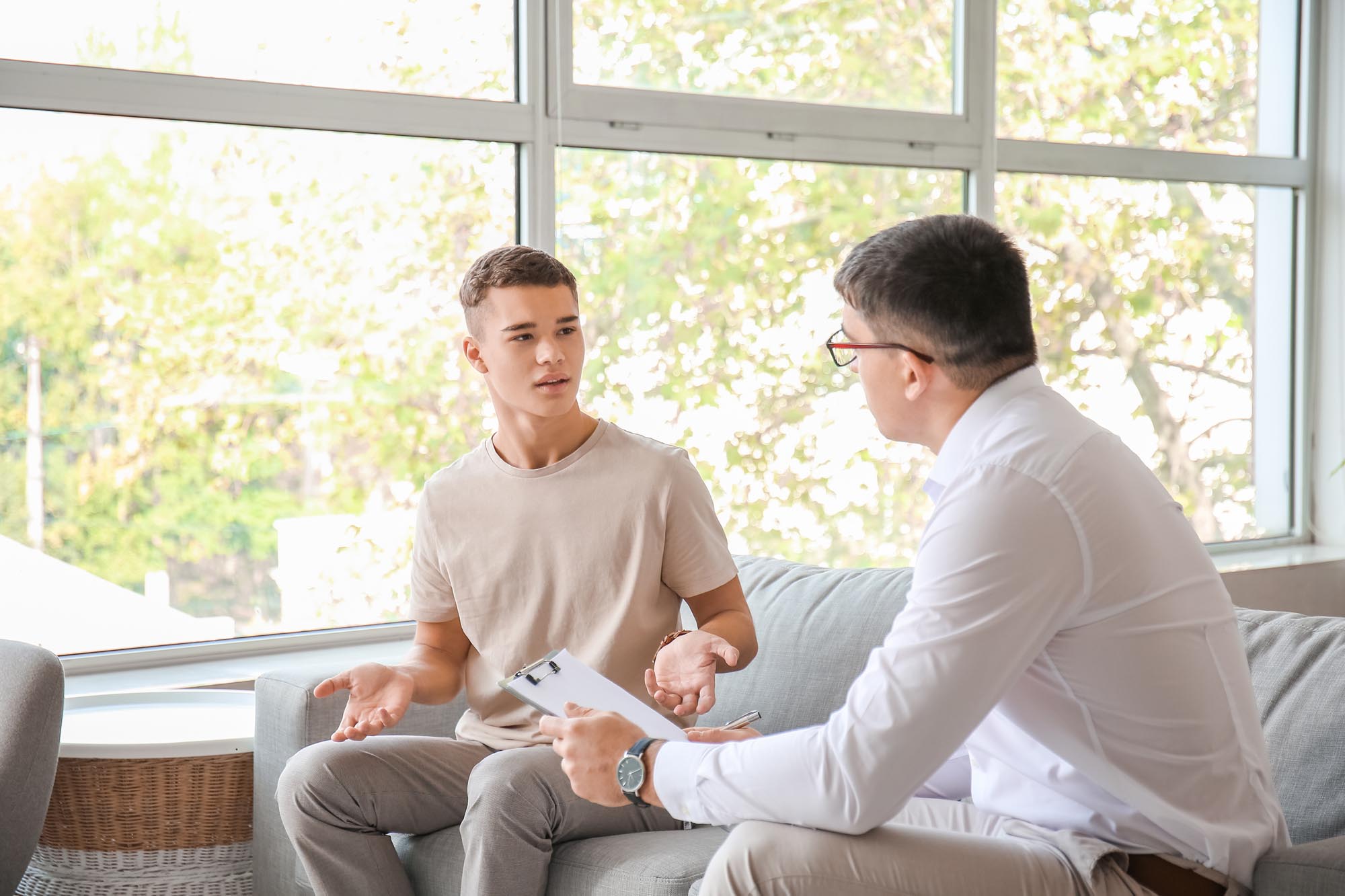Introduction
Transitioning from inpatient mental health care back into the community is a crucial moment in any adolescent’s recovery journey. This mental health transition represents more than just a change in location – it’s a significant step toward independence, healing, and long-term wellness.
The path from structured inpatient care to community living comes with its unique set of challenges:
- Adjusting to reduced structure: Adapting to life without 24/7 professional support
- Managing medications: Taking responsibility for treatment adherence
- Rebuilding relationships: Reconnecting with family and friends
- Academic reintegration: Returning to school and managing academic pressures
- Developing coping skills: Applying learned strategies in real-world situations
A strong support system plays a vital role in making this transition successful. Think of it as a safety net – the more people and resources involved, the stronger the foundation for recovery becomes. This network typically includes:
- Mental health professionals
- Family members
- School counselors
- Peer support groups
- Community organizations
At Build Bright Care Group, we understand that each teen’s journey is unique. We’ve seen how proper support during this critical transition period can make the difference between struggle and success. The right combination of professional guidance, family involvement, and community resources creates a nurturing environment where young people can thrive as they step back into their daily lives. Our approach is designed to provide that necessary support and guidance during these challenging times.
Understanding Inpatient Mental Health Care
Inpatient mental health treatment provides intensive, 24/7 care in a structured therapeutic environment. This specialized setting creates a safe space for adolescents to focus entirely on their mental health journey without external pressures or triggers.
Residential teen mental health treatment programs, such as those offered by Build Bright Care Group, provide comprehensive care that includes:
- Individual therapy sessions
- Group counseling
- Family therapy
- Medication management
- Academic support
- Life skills development
Common conditions treated in adolescent inpatient settings include:
- Severe depression and anxiety
- Autism
- Trauma-related disorders
- Substance use disorders
- Self-harming behaviors
- Bipolar disorder
The structured environment helps teens develop healthy coping mechanisms, establish routine, and build essential life skills. Medical professionals, therapists, and support staff work together to create personalized treatment plans that address each teen’s unique needs and challenges.
A typical day at a teen treatment center like Build Bright Care Group includes therapeutic activities, educational sessions, meals, recreational time, and structured social interactions – all designed to promote healing and personal growth in a supportive community setting.
The Importance of Community Integration and Life Skills Education
Community integration represents a vital bridge between inpatient care and independent living. It’s the process where individuals learn to reconnect with their community, build meaningful relationships, and participate in daily activities that promote mental wellness.
Key Elements of Successful Community Integration:
- Participating in social activities and community events
- Building supportive relationships outside the treatment setting
- Engaging in recreational activities
- Accessing community resources and services
- Developing a sense of belonging
Life skills education plays a crucial role in fostering independence and self-sufficiency. These practical skills help teens navigate daily challenges and maintain their mental health progress.
Essential Life Skills for Recovery:
- Personal hygiene and self-care routines
- Time management and organization
- Financial literacy and budgeting
- Healthy meal planning and preparation
- Communication and conflict resolution
- Stress management techniques
- Goal setting and decision making
Moreover, community integration also involves developing life skills that are essential for a smooth transition into independent living. The combination of community integration and life skills education creates a strong foundation for long-term recovery, empowering teens to build confidence and maintain their mental health progress in real-world settings.
Key Components for a Successful Transition from Inpatient Care to Community Living
A successful transition from inpatient care to community living requires several essential components working together seamlessly. Let’s explore these critical elements that create a strong foundation for recovery and independence.
Community-Based Services
Effective community integration relies on a network of comprehensive services:
- Assertive Community Treatment (ACT) – A team-based approach providing round-the-clock support
- Crisis intervention programs – Immediate assistance during mental health emergencies
- Mental health clinics – Regular therapy and medication management
- Support groups – Spaces for sharing experiences and coping strategies
Discharge Planning: The Bridge to Success
Proper discharge planning starts well before a teen leaves inpatient care. A solid plan includes:
- Identifying specific treatment goals
- Creating detailed medication schedules
- Establishing connections with community providers
- Setting up initial appointments
- Developing crisis prevention strategies
Supportive Housing Solutions
Safe, stable housing forms the cornerstone of successful community integration. Options include:
- Transitional housing programs – Short-term accommodations with built-in support services
- Supervised group homes – Structured environments with 24/7 staff presence
- Semi-independent living – Apartments with regular check-ins from support staff
These housing solutions help prevent homelessness and provide the stability needed for continued recovery.
Employment Support Services
Getting back to work or starting a career path plays a vital role in building independence and self-worth. Key employment resources include:
- Job readiness training
- Resume writing workshops
- Interview preparation
- Professional communication skills
- Time management coaching
- Supported employment programs
- On-the-job training
- Job coaching
- Workplace accommodations
- Ongoing support for job retention
Case Management Support
Dedicated case managers help teens navigate these various components by:
- Coordinating services between providers
- Monitoring progress toward goals
- Adjusting support levels as needed
- Advocating for additional resources
- Maintaining communication with family members
Each of these components works together to create a comprehensive support system. The right combination of services, carefully coordinated and consistently delivered, helps teens build confidence and develop the skills needed for successful community living.
Peer Support, Coordination of Care, and Evidence-Based Interventions in Facilitating Successful Transitions
The power of shared experiences stands at the heart of successful mental health transitions. Peer support specialists – individuals who have navigated their own mental health journeys – bring unique insights and authentic understanding to the transition process. These specialists create genuine connections with teens, offering:
- Real-world coping strategies based on personal experience
- Validation and normalization of challenges
- Hope through living examples of recovery
- Bridge-building between clinical care and daily life
A coordinated approach to care delivery amplifies transition success rates. When mental health providers, schools, families, and community resources work in harmony, teens receive comprehensive support that addresses their unique needs. This integration creates:
- Seamless communication between service providers
- Clear treatment goals and expectations
- Reduced gaps in care delivery
- Enhanced monitoring of progress
Evidence-based interventions play a crucial role in supporting successful transitions. Two notable models have shown promising results:
Critical Time Intervention (CTI)
- Time-limited support focused on strengthening community connections
- Structured phases that gradually decrease dependency
- Emphasis on building sustainable support networks
Transitional Discharge Models
- Overlap between inpatient and community care
- Gradual reduction of intensive support
- Focus on building independence while maintaining safety nets
The combination of peer support, coordinated care, and proven interventions creates a robust framework for teens transitioning from inpatient care. This approach recognizes that successful transitions require both emotional support and practical assistance, delivered through structured yet flexible programs that adapt to individual needs.
Research shows that teens who receive this comprehensive support demonstrate:
- Higher rates of treatment adherence
- Improved social connections
- Better academic performance
- Reduced likelihood of readmission
- Increased confidence in managing their mental health
Quality Assurance, Staff Training, and Resources for Life Skills Development in Successful Community Integration Post-Treatment
Quality assurance mechanisms are crucial for ensuring smooth transitions from inpatient care to community living. Regular evaluations of services help identify areas where support may be lacking and allow for timely adjustments to meet the specific needs of each teenager. These evaluations include:
- Client satisfaction surveys
- Progress tracking metrics
- Regular case reviews
- Outcome measurements
- Family feedback systems
Staff training is another important aspect of providing effective support. Mental health professionals who work with teenagers transitioning from inpatient care need specialized skills and knowledge to offer appropriate guidance. Key areas of training include:
- Crisis intervention techniques
- Cultural competency
- Trauma-informed care
- Family systems approach
- Adolescent development
Developing life skills is essential for teenagers to successfully live independently. They need to master certain skills such as:
Personal Management Skills:
- Budget planning
- Meal preparation
- Personal hygiene
- Time management
- Medication self-management
Social Skills:
- Communication
- Conflict resolution
- Boundary setting
- Community navigation
- Building healthy relationships
Build Bright Care Group offers structured programs that teach these important life skills through various activities like:
- Hands-on workshops
- Role-playing exercises
- Practical skill demonstrations such as:
- Budgeting
- Resume building
We track progress in each area of life skills development using quality metrics, which allows us to make personalized adjustments to the support provided. Our staff members also receive ongoing training updates to ensure they stay up-to-date with the best practices in adolescent mental health care and transition support. This comprehensive approach guarantees that teenagers develop the confidence and abilities necessary for successful integration into the community.
Embracing Resources and Support Systems for a Smooth Transition to Community Living After Inpatient Mental Health Care with Build Bright Care Group’s Support!
The journey from inpatient care to community living marks a significant milestone in mental health recovery. Build Bright Care Group stands ready to support adolescents ages 12-17 through this transformative process. Our comprehensive support system, combined with evidence-based practices, creates a solid foundation for successful community integration.
Your next steps for a successful transition:
- Connect with peer support specialists who understand your journey
- Engage with community resources and support groups
- Practice life skills learned during treatment
- Stay committed to your treatment plan
- Maintain open communication with your care team
Remember: A strong support network and willingness to use available resources can make your transition smoother and more successful. You’re not alone on this path – Build Bright Care Group is here to guide you every step of the way. Contact us today!











